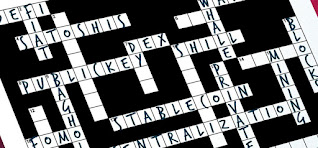10 coding keywords and acronyms
The world of crypto finance continues to make its way, and more and more people are trying to delve into all its secrets. Understand it in order to do business to the best of your abilities and strategies. Precisely for this reason, if you are trying to understand cryptocurrencies better, we have good news for you. We will go over different definitions, set of keywords, and coding abbreviations.
The thing is, you probably feel like you can select items like Bitcoin or blockchain, but not much more than that. So, whether you want to discuss the topic with your friends, or play hard in the sector, you should keep reading. Below you will find many of the most important concepts when we talk about cryptocurrencies.
10 essential coding shortcuts
HODL
We can say, in fact, that this is a word that has been talked about a lot in these times. A HODLer is that person who has bought Bitcoins, or any other currency, but generally does not make operations with them, but just waits for time to pass and continues to invest in capitalization over the months.
We have already explained what HODL is and what its advantages are, and it is a technique that can provide some certainty, especially in the days when cryptocurrency volatility threatens to blow everything up.
FOMO (and FUD)
FOMO and FUD are two acronyms that do not come directly from the cryptocurrency world, but from the community. First, FOMO stands for 'fear of missing something'. An example is FOMO with the Bitcoin futures ETF.
Second, with at least a little less popularity at the moment, we have FUD, which refers to fear or suspicion.
We are talking about the sensations of those who invest in cryptocurrencies, who can react to such behaviors to cause sudden increases or decreases in their prices, and act impulsively.
Maximalist Bitcoin
As the name implies, this word refers to a person who is 100% dedicated to the cause of Bitcoin and is not interested in any other cryptocurrency. The extreme in Bitcoin sees the future of cryptocurrency in this way. Of course, there are many analysts who support this belief versus against it.
satoshi
Observant readers will note that this is the first name of Satoshi Nakamoto, the alleged Bitcoin creator and author of the Bitcoin White Paper. But as a word in and of itself, it refers to the least amount of Bitcoin that a person can own. Something like cells for the body.
If we translate it into numbers, the correct formula will be: 0.00000001 BTC.
DeFi (and DApp)
The following coding shortcuts will be huge for the market growth in the coming years. As we wonder about DeFi's next step, we define it as decentralized finance, a superior departure from traditional finance that makes joint transactions and operations no longer require intermediaries. Insurance, loans and savings accounts. Everything will depend, soon, on blockchains with smart contracts.
On the side of popular DApps or decentralized applications, they are nothing but applications developed following this theory that it is better not to rely on anything or anyone for intermediaries.
forking
Formation occurs when a change is required to be made on the cryptocurrency's blockchain. This may be necessary for a number of reasons, and there are soft prongs and hard prongs. The main difference is that the soft fork can be thought of as a “software update,” with new consensus rules aligned with the rules of the previous version of the blockchain. On the other hand, Hard Fork sees permanent cracks in the blockchain and assumes that there are entirely new consensus rules.
REKT
Derived from the player's domain and referring to "ruined," it is now becoming fashionable among investors. In short, it describes that moment when a financial loss of serious proportions was generated. Usually, it is associated with a misreading of the conditions surrounding that movement.
Dior
The literal translation of “do your own research,” “do your own research,” means that you alone are in a position to make a decision about your money, and that although there are trusted teachers, you should not associate yourself with them 100%.
How much did you learn from coding shortcuts? Which of the others surprised you the most?


